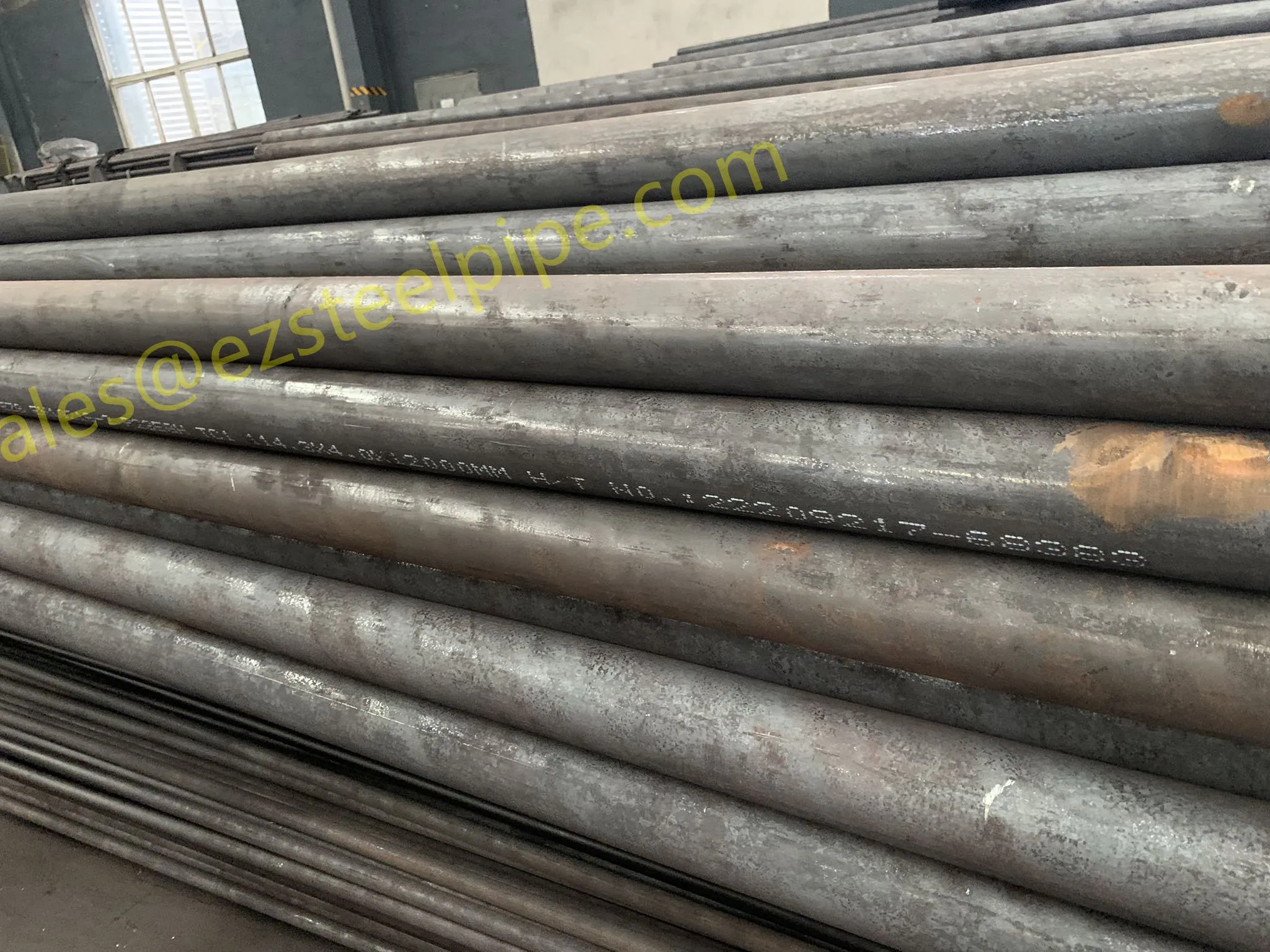 export@ezsteelpipe.com
export@ezsteelpipe.com +86 731 8870 6116
+86 731 8870 6116
This specification covers seamless ferritic alloy-steel pipes intended for high-temperature service. The pipe is suitable for bending, flanging, and similar forming operations. Grades include P5, P9, P11, P12, P22, P91, P92, P122, etc., with varying chemical compositions and mechanical properties.


This specification covers seamless ferritic alloy-steel pipes intended for high-temperature service. The pipe is suitable for bending, flanging, and similar forming operations. Grades include P5, P9, P11, P12, P22, P91, P92, P122, etc., with varying chemical compositions and mechanical properties.
Purchasers must specify the following when ordering:
- Quantity (length or number of pipes)
- Material grade (e.g., P11, P22, P91)
- Size (NPS or DN and schedule or wall thickness)
- Length (random or specific)
- ASTM designation (A335 or A335M for metric units)
- Optional requirements (e.g., additional testing, special finishes)
- Any supplementary requirements (S1–S7)
- Process: Pipes shall be made by seamless process (hot-worked or cold-worked followed by heat treatment).
- Heat Treatment: All pipes must undergo proper heat treatment (e.g., normalization, tempering) to meet mechanical properties.
Each grade has specific limits for carbon, manganese, phosphorus, sulfur, silicon, chromium, molybdenum, and other alloying elements.
- Tensile Strength, Yield Strength, and Elongation: Requirements vary by grade (e.g., P91: min. tensile strength 585 MPa, yield strength 415 MPa).
- Hardness Testing: Optional unless specified.
- Hydrostatic Testing: Each pipe must withstand a specified hydrostatic pressure without leakage.
- Nondestructive Electric Testing (NDE): Optional unless required (e.g., eddy current, ultrasonic testing).
- Flattening Test, Bend Test, or Flange Test: Required for certain sizes and grades.
- Impact Testing: Required if specified (e.g., for low-temperature service).
- Manufacturer must perform tests and provide a Certificate of Compliance.
- Third-party inspection may be required if specified in the purchase order.
Each pipe must be marked with:
- Manufacturer’s name or trademark
- ASTM designation (A335 or A335M)
- Grade (e.g., P11, P22)
- Heat number
- Size and schedule
Optional additional tests (e.g., grain size analysis, special NDE methods) may be specified.
Seamless pipe, alloy steel, high-temperature service, ferritic steel, P-grade steels.
| Grade | UNS Number | Key Alloy Composition | Common Applications |
| P1 | K11522 | 0.5Mo | Low-alloy boilers, piping |
| P2 | K11547 | 0.5Cr-0.5Mo | Power plants, refineries |
| P5 | K41545 | 5Cr-0.5Mo | High-temp/pressure service |
| P9 | S50400 | 9Cr-1Mo | Petrochemical, boilers |
| P11 | K11597 | 1.25Cr-0.5Mo-Si | Power generation, steam lines |
| P12 | K11562 | 1Cr-0.5Mo | Similar to P11, boilers |
| P21 | K31545 | 3Cr-1Mo | High-temp strength |
| P22 | K21590 | 2.25Cr-1Mo | Widely used in power plants |
| P91 | K91560 | 9Cr-1Mo-V-Nb | Advanced high-temp/pressure |
| P92 | K92460 | 9Cr-2W-0.5Mo-V-Nb | Ultra-supercritical boilers |
| P122 | K91640 | 11Cr-2W-1Cu-Mo-V-Nb | High-efficiency power plants |
- Grades P5 to P92 are chromium-molybdenum (Cr-Mo) steels, offering increasing resistance to oxidation and creep at elevated temperatures.
- P91, P92, and P122 are advanced high-strength steels used in modern power plants for ultra-supercritical (USC) applications.
- P1 and P2 are lower-alloy grades for less severe conditions.
These grades are selected based on temperature, pressure, and corrosion resistance requirements in industries like power generation, oil & gas, and petrochemical plants.
Want to order the same ? Contact us Now to send your request!

 Related Products
Related Products